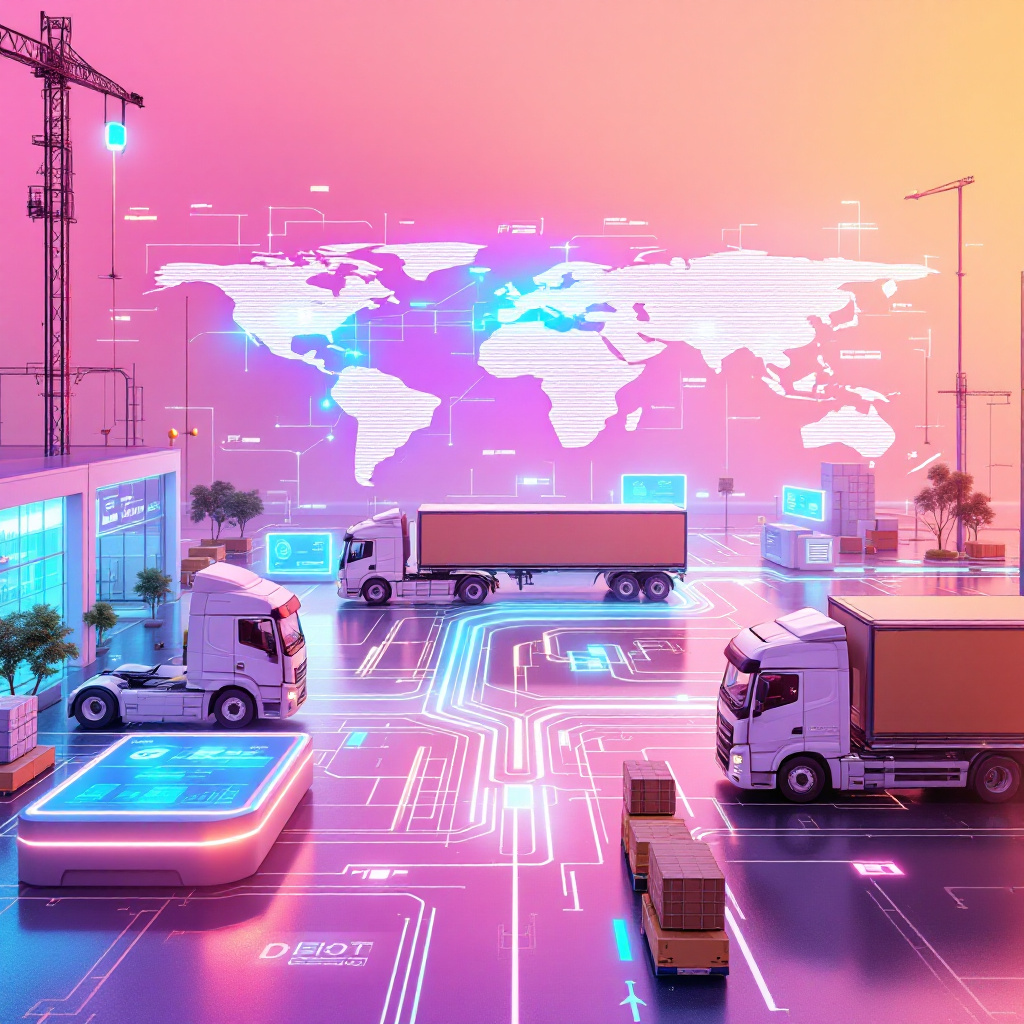Nykyaikaiset logistiikkaprosessit ovat monimutkaisia ja edellyttävät nopeutta ja tarkkuutta. Esineiden internet (IoT) parantaa logistiikan tehokkuutta tarjoamalla jatkuvaa valvontaa ja optimointia koko toimitusketjussa. IoT koostuu toisiinsa liitetyistä laitteista, jotka lähettävät tietoja reaaliajassa. Logistiikassa tähän kuuluvat IoT:hen liitetyt anturit, GPS-seurantalaitteet, RFID-tunnisteet ja älykkäät kamerat. Näiden välineiden avulla yritykset voivat seurata tavaroiden kuntoa ja sijaintia, hallita varastoja ja optimoida reittejä.
IoT:n tärkeimmät sovellukset logistiikassa
- Rahdin ja kuljetusten seuranta
IoT:n avulla yritykset voivat seurata tavaroiden liikkumista toimitusketjussa. Anturit, GPS-seurantalaitteet ja RFID-tunnisteet antavat tietoa sijainnista, kunnosta ja lämpötilasta. Tämä on ratkaisevan tärkeää pilaantuvien tavaroiden kuljetuksessa. - Reitin optimointi
IoT-ratkaisut analysoivat liikenne- ja sääolosuhteita. Tämä auttaa kuljettajia valitsemaan parhaan reitin. Tämän seurauksena toimitusajat lyhenevät, polttoainekustannukset pienenevät ja toiminnan tehokkuus paranee. - Varastoautomaatio
Osoitteessa varastotIoT auttaa varastonvalvonnassa ja tuotesijoittelun optimoinnissa. Anturit seuraavat varastotasoja reaaliajassa, mikä estää puutteet tai ylivarastot. IoT-laitteilla varustetut robottijärjestelmät yksinkertaistavat poimimista ja lähettämistä. - Lastin kunnon seuranta
IoT-laitteet valvovat lämpötilaa, kosteutta ja muita kriittisiä parametreja lääkkeissä ja elintarvikkeissa. Poikkeamista lähetetään välittömästi hälytykset, jolloin voidaan toimia nopeasti.
IoT:n käytön hyödyt logistiikassa
- Toimitusketjun avoimuus: Yritykset saavat logistiikkatoiminnot hallintaansa ja voivat reagoida nopeasti muutoksiin.
- Kustannusten vähentäminen: Reittien optimointi ja varastojen automatisointi alentaa polttoaine- ja varastointikuluja.
- Lisääntynyt toimitusnopeus: IoT-alustat minimoivat viiveet ja parantavat toimitusaikojen tarkkuutta.
- Turvallisuus ja luotettavuus: Lastin olosuhteiden seuranta vähentää kuljetuksen aikana tapahtuvien vahinkojen tai menetysten riskiä.
IoT:n tulevaisuus logistiikassa
Teknologian kehittyessä esineiden internetin rooli logistiikassa kasvaa. Tekoälyn ja koneoppimisen yhdistäminen IoT:hen auttaa ennakoimaan häiriöitä ja estämään viivästyksiä. Tulevina vuosina voidaan odottaa autonomisten ajoneuvojen ja älykkäämpien varastonhallintaratkaisujen yleistymistä.
Päätelmä
Esineiden internet muuttaa logistiikka-alaa. Se tekee logistiikasta avoimempaa, nopeampaa ja tehokkaampaa. Yritykset, jotka ottavat käyttöön IoT-ratkaisuja, saavat kilpailuetua leikkaamalla kustannuksia ja parantamalla toimitustarkkuutta. Logistiikan tulevaisuus on digitalisaatiossa, jonka ytimessä on IoT. Hyödyntämällä IoT-teknologiaa logistiikkayritykset voivat tehostaa toimintaansa ja vastata markkinoiden kasvaviin vaatimuksiin.

 Esineiden internet (IoT) logistiikassa: Miten se toimii">
Esineiden internet (IoT) logistiikassa: Miten se toimii">
